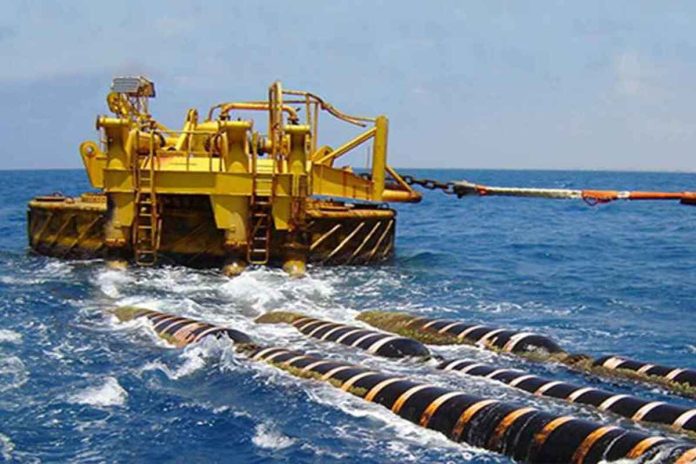India is actively exploring the possibility of connecting its power grid with Saudi Arabia and the UAE through subsea cables on the west coast, as well as with Singapore on the east coast.
India and Saudi Arabia have agreed to connect their power grids, which will enhance the reliability of power supply and support economic development in both countries. This collaboration is part of a growing energy alliance between the two nations.
The agreement to link the power grids was signed by RK Singh, the Union minister for new and renewable energy in India, and Abdulaziz bin Salman bin Abdulaziz Al Saud, the minister of energy for Saudi Arabia. This signifies the commitment of both countries to strengthen their energy cooperation.
It was previously reported that India intends to connect the national power grids of the two countries using a subsea cable. This project, if successful, will further enhance the energy partnership between India and Saudi Arabia.
India is actively exploring the possibility of connecting its power grid with Saudi Arabia and the UAE through subsea cables on the west coast, as well as with Singapore on the east coast.
This interconnectivity would allow countries to share power resources, reducing the need for expensive renewable energy storage solutions and improving the reliability of their power grids.
For India, this pursuit is crucial to achieving its long-term economic and energy security goals, as it aligns with the One Sun One World One Grid (OSOWOG) plan, which aims to connect countries through a global power grid, as per Mint report.
A task force established by the power ministry has thoroughly examined the feasibility of interconnecting the regional grids of Southeast Asia, South Asia, the Middle East, Africa, and Europe for the purpose of sharing renewable energy resources. This initiative seeks to foster cooperation among countries and promote the sustainable utilisation of renewable energy.
In addition to grid interconnectivity, India and Saudi Arabia have signed an agreement to collaborate in various areas such as renewable energy, energy efficiency, hydrogen, electricity, petroleum, natural gas, strategic petroleum reserves, and energy security.
The agreement also aims to encourage bilateral investment in renewable energy, electricity, hydrogen, and storage, as well as investments in conventional fuels like oil and gas. It is worth noting that Saudi Arabia has traditionally been a major supplier of oil to India.
In light of the global energy market instability caused by Russia’s incursion into Ukraine, India has been actively seeking ways to diversify its energy resources.
The India-Saudi pact not only aims to enhance cooperation between the two nations in combating climate change, but also focuses on developing technologies such as carbon capture, utilisation and storage, circular economy, digital transformation, innovation, cybersecurity, and artificial intelligence in the energy sector.
The agreement also emphasises the importance of establishing qualitative partnerships to localize materials, products, and services related to all aspects of energy, supply chains, and technologies.


